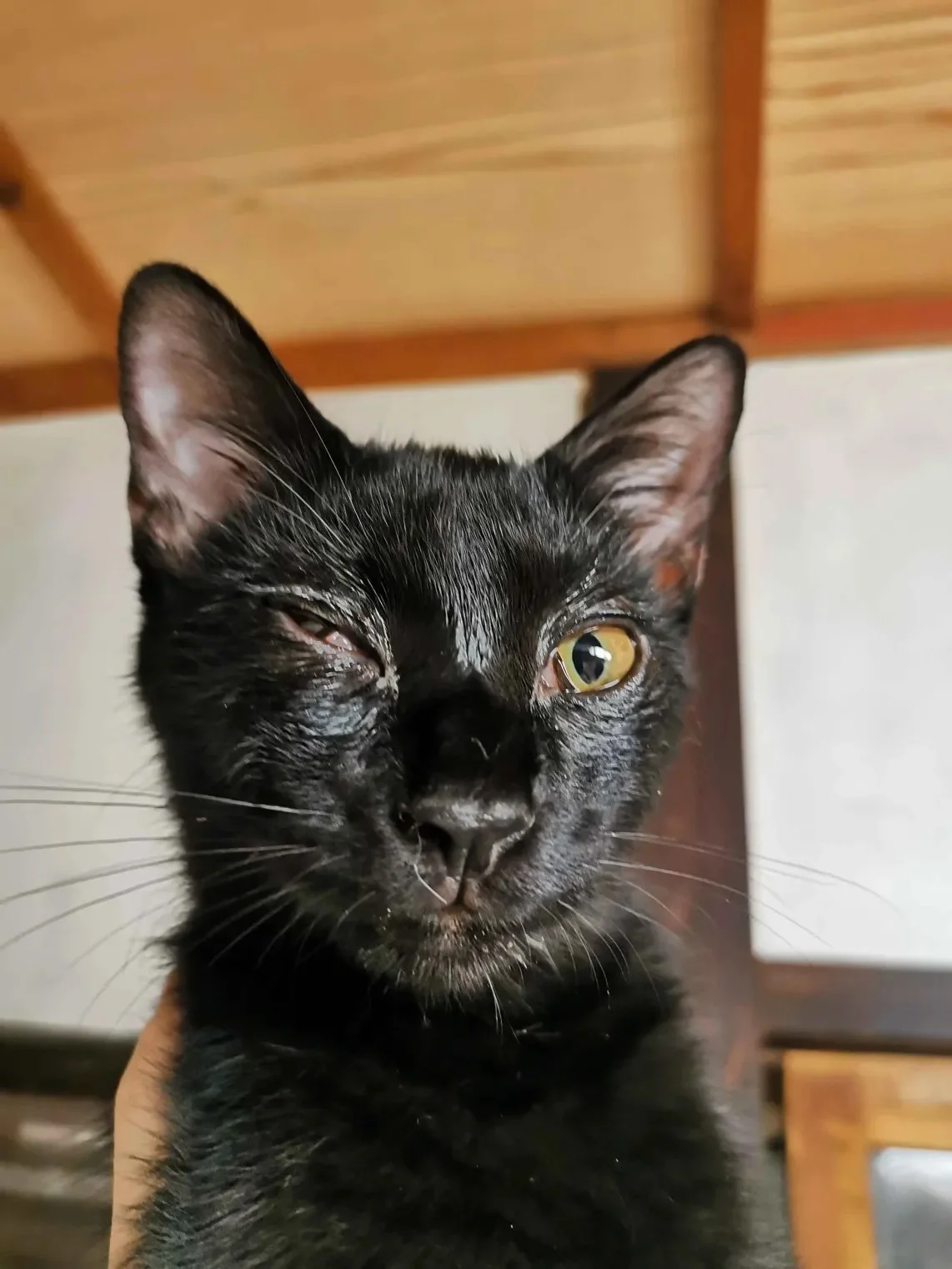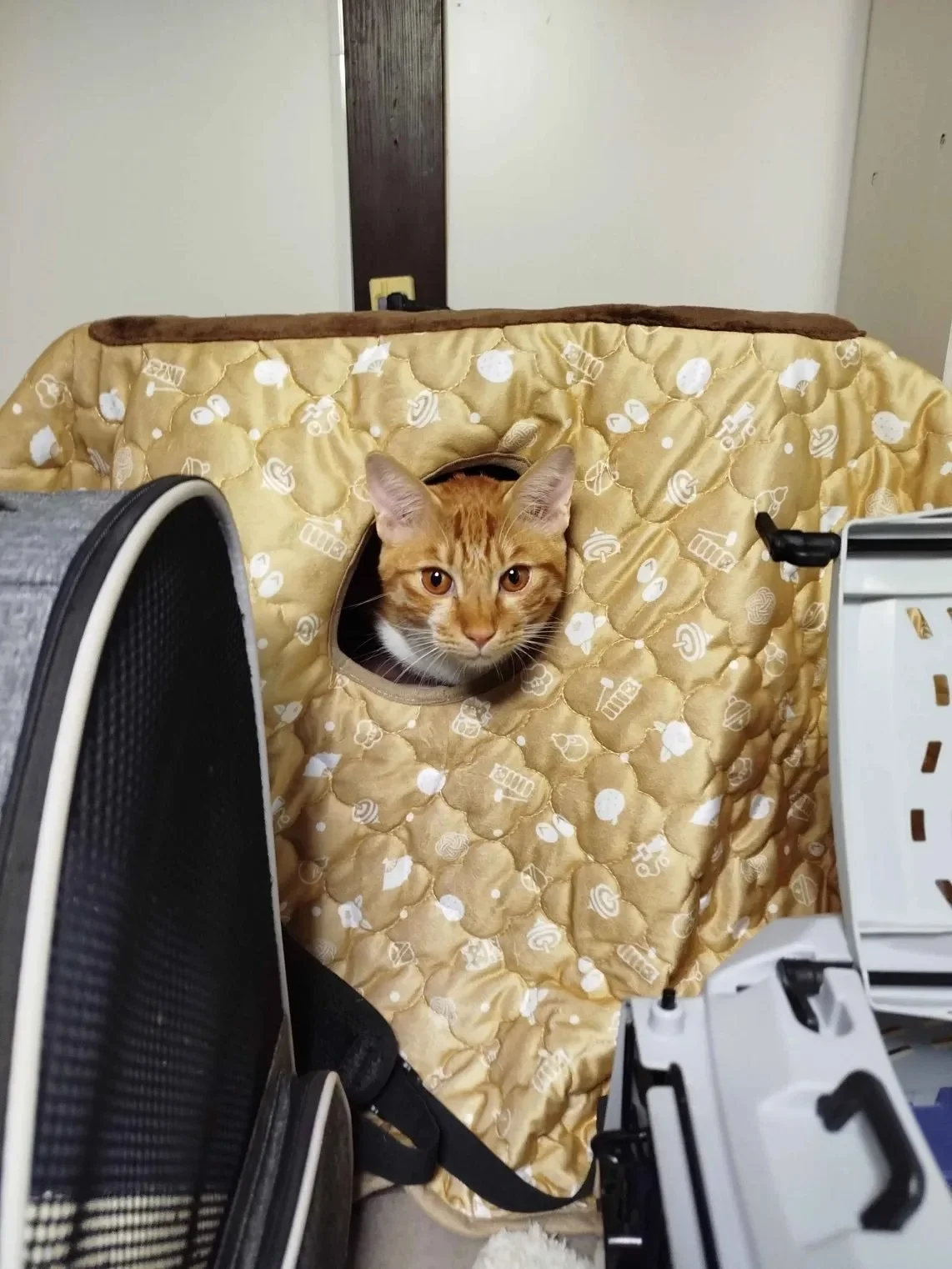Upper Respiratory Infections
The cold weather at this time of year can be really hard on kitties who are struggling with new or chronic upper respiratory infections (URI’s). This condition is often called a “cat cold” or “cat flu” and the symptoms are similar to what we humans might suffer with cold or flu. Cats become congested, sneezy, and might have discharge around the eyes or nose. For this #WiseWednesday we want to mention some important points to keep in mind regarding this potentially serious health condition.
Cause of URIs
URI’s are usually caused by viruses, primarily Calici or FVR (Herpes). Both can be protected against by 3-way vaccines. Viruses cannot be cured, so medical intervention is limited to supportive treatments and antiviral therapies (which, other than interferon, are not yet commonly used for cats in Japan). Since secondary infections can develop, it’s generally helpful to start antibiotics right away, in order to head off severe issues such as pneumonia. This is particularly the case regarding viruses passed around in shelters or in largely unvaccinated outdoor colonies. These kinds of viral exposures can be extra strong, and must be addressed vigorously.
Unvaccinated cats are most at risk
Unvaccinated cats are hit the hardest, especially the young or old; the immune compromised; and/or those with limited food access. This makes it really important to get every trapped neutered and returned cat vaccinated before release. It’s also important to get any new rescues vaccinated as soon as possible. Finally, disinfecting hands and materials between potentially infected and non-infected cats is also essential.
Loss of smell can lead to weight loss, liver trouble
Cats need to smell food to be sure it’s safe. When congestion causes them to lose their sense of smell, this can cause them to stop eating. If they stop eating for several days in a row, that can cause lipidosis, which can be fatal. It’s important to offer foods with strong smells, and to monitor food intake carefully. It may be necessary to syringe feed high calorie liquid or paste type foods, in order to help ensure enough calories are being consumed. Be sure to check calorie content, since some liquidy foods are actually very low in calories. Nebulizer treatment can greatly reduce congestion.
Dehydration is a risk; proactively supply fluids
URI symptoms often cause dehydration, which can make all other aspects worse. Check for the level of hydration by pulling up the skin at the back of the neck. If the skin tents or moves back into place slowly, the cat is dehydrated and needs to be given subcutaneous or IV fluids.
Eye discharge can cause blindness
If eyes are sticky from discharge, the lids can remain closed for extended periods of time. This can cause permanent damage to the eyes, and as a result, many stray kittens lose partial or all eye sight. Medical cat-specific eye drops can be used to gently clean and open eyes. Soft warm wet cloths can be used to gently clean the face and nose, clearing away discharge.
Provide extra warmth via heating pads, hot water bottles
Unwell cats can really benefit from added warmth. Use low level electric heating pads, which cats can crawl off of or onto as needed. Hard case types are recommended, as they can be easily cleaned and disinfected. Hot water bottles are great, too, but only if able to change frequently. If not, that can make the situation worse after the bottle cools. Outdoor cats can benefit from insulated hutches filled with straw (NOT blankets, which can become damp and freeze).
URIs can recur
URI exposure is fairly common in Japan, either while outdoors, or in multi-cat indoor environments. Once a cat has been exposed, the cat may experience viral flare ups for the rest of their life. These flare ups can occur during times of stress (for example, when changing living situations) or other low immunity. Feeding a high quality food and employing stress reduction strategies can be helpful across the board.
While many cats will recover from these viruses with no lasting problems, others may suffer lasting impairment, or may not survive. It’s important to take all viral symptoms seriously, practice defensive strategies, and to begin supportive treatment as soon as possible. When you see a cat or kitten outdoors struggling with a severe upper respiratory condition, there is generally a need for urgent assistance.
For more info on URIs and what you can do, please check out these other articles:



